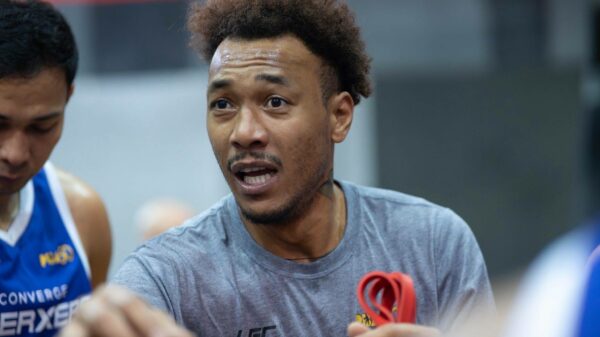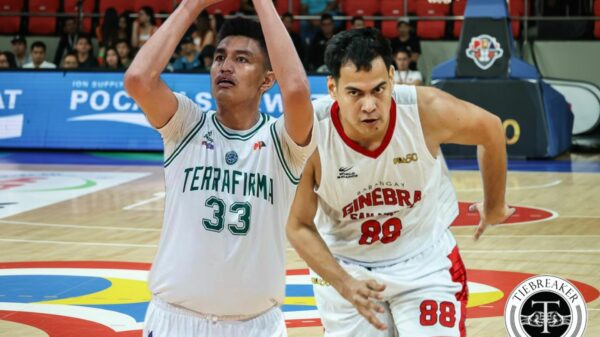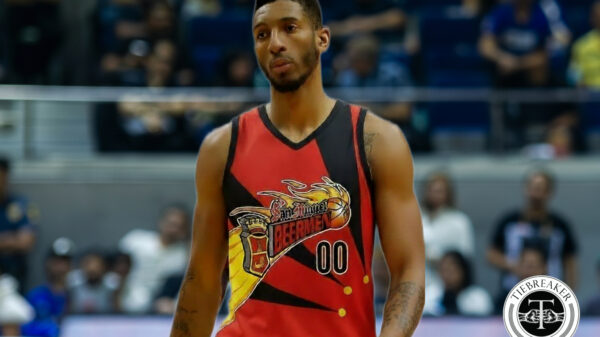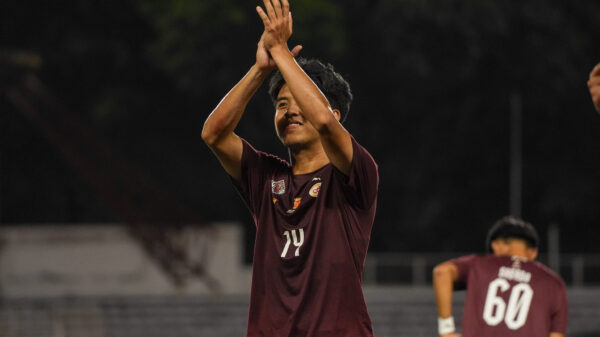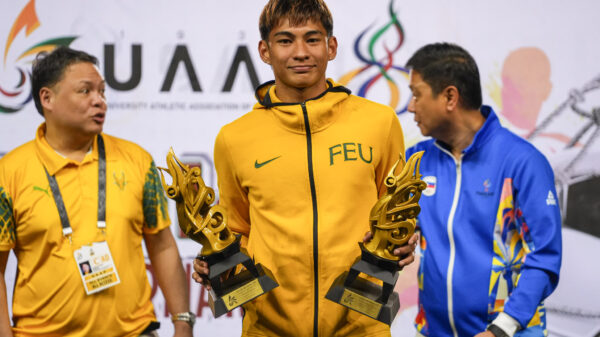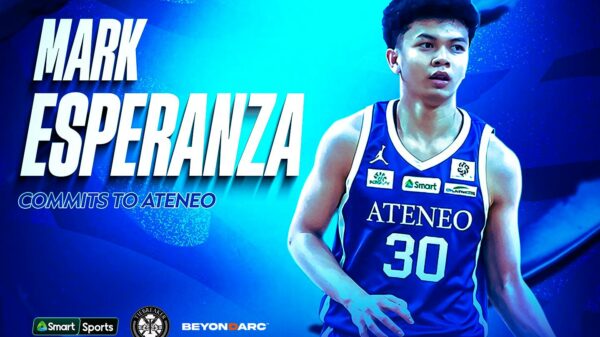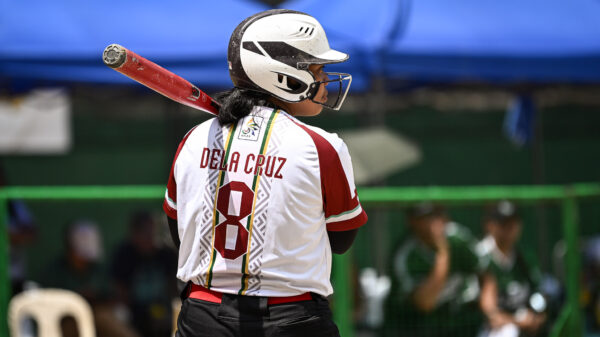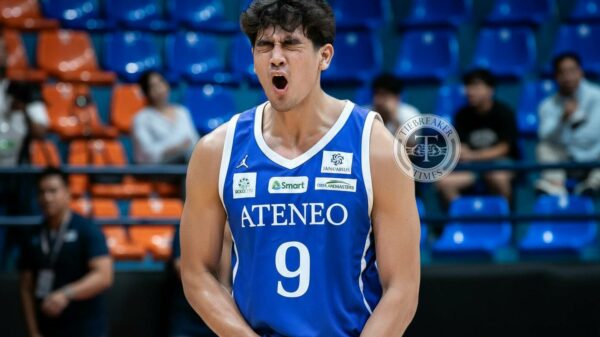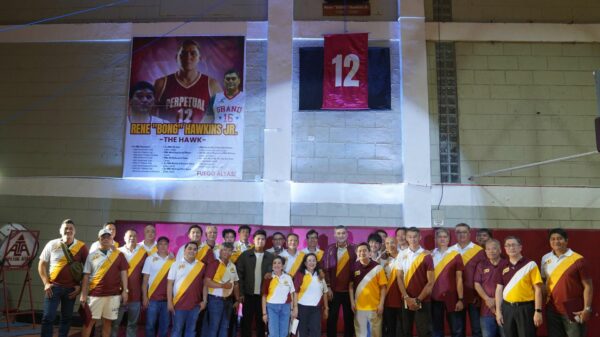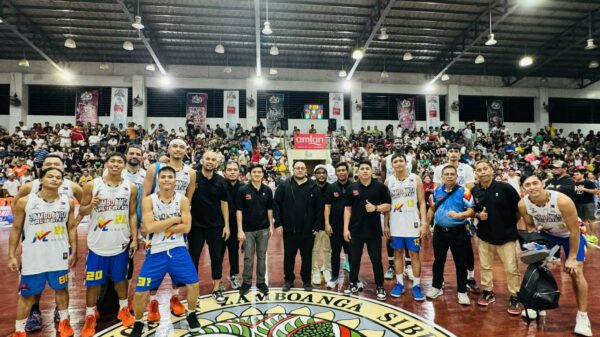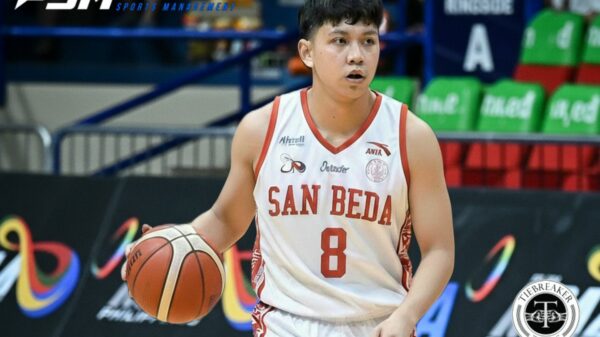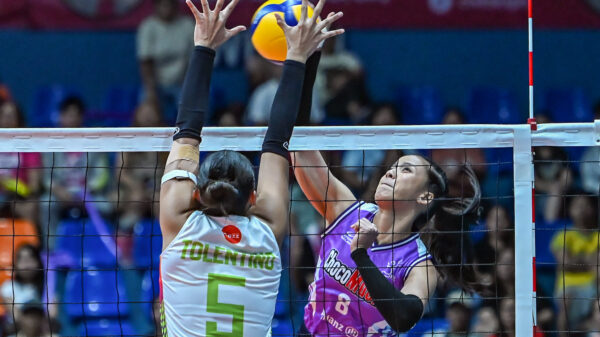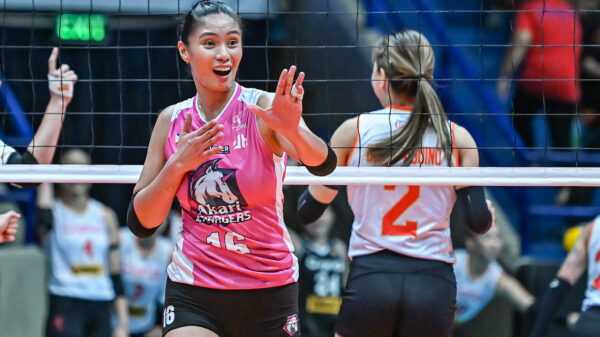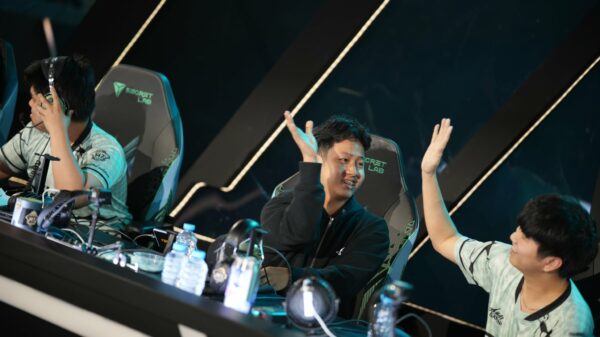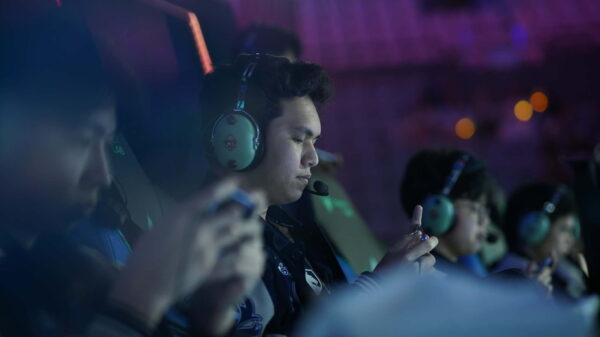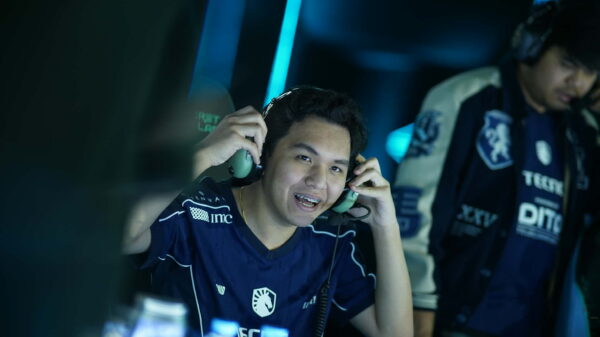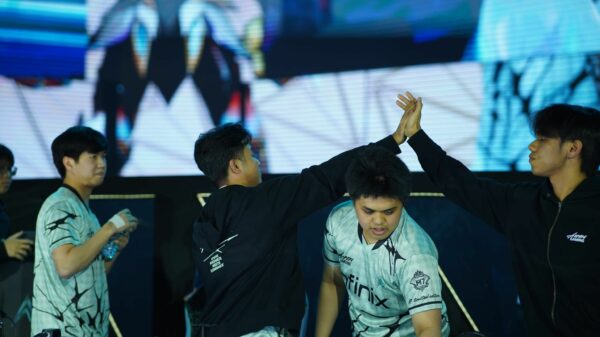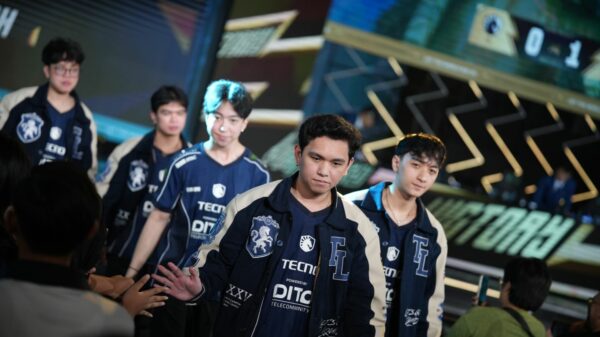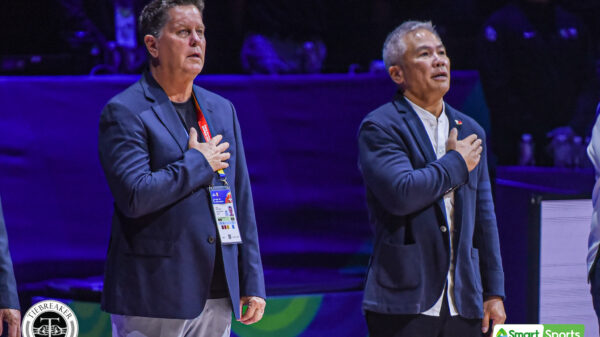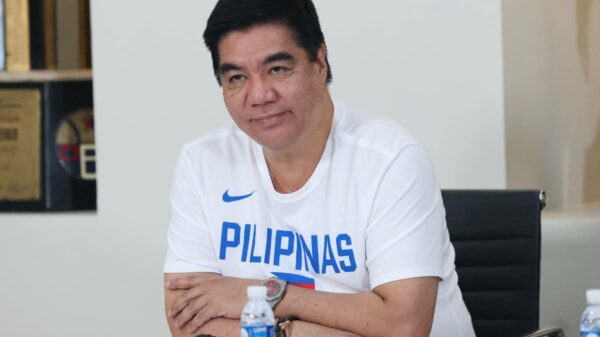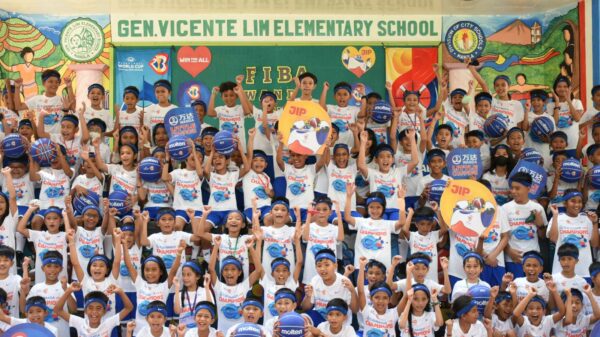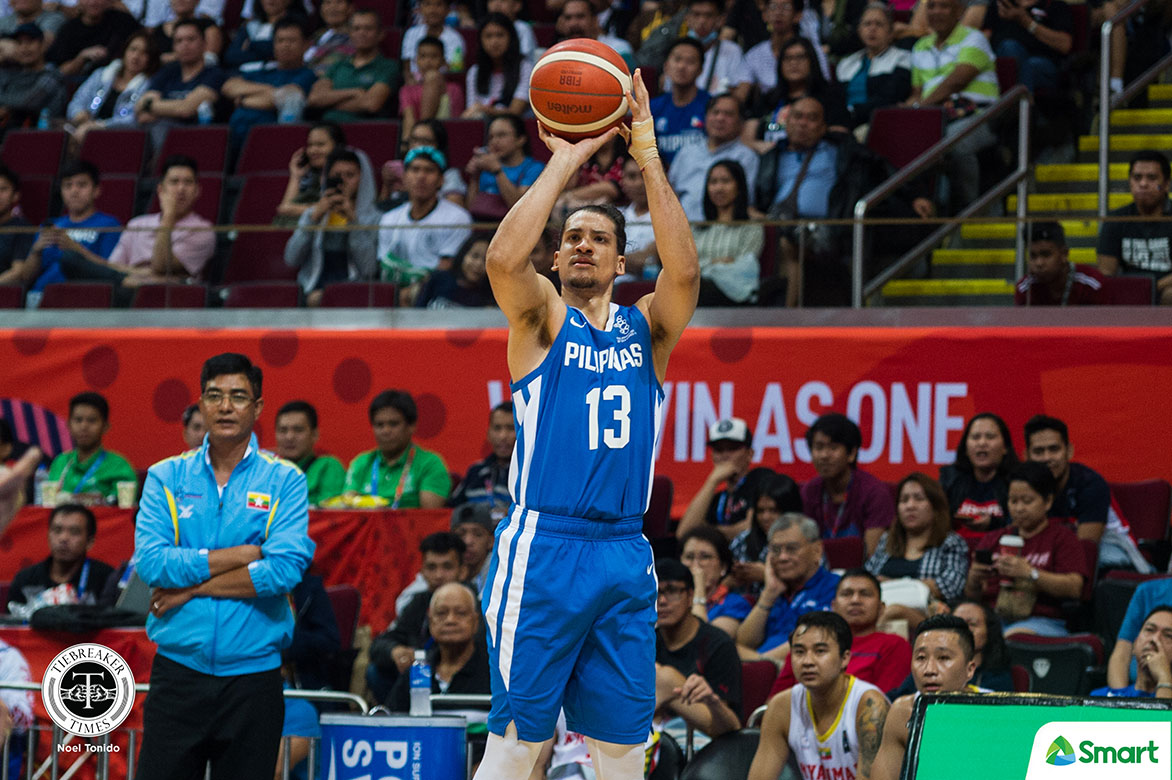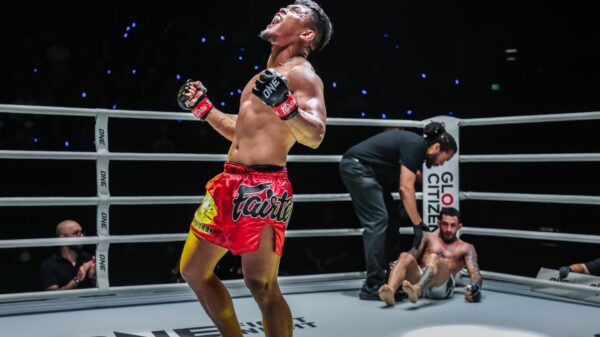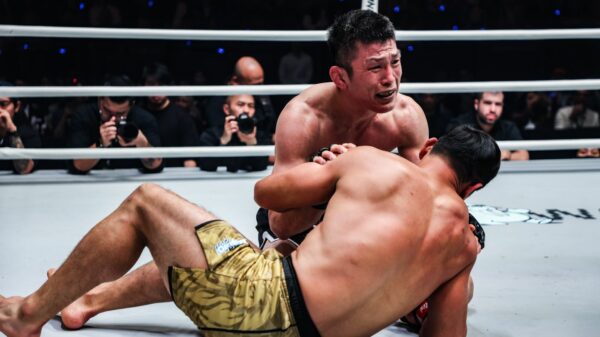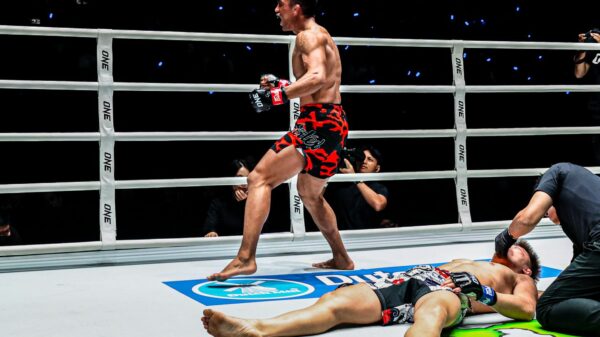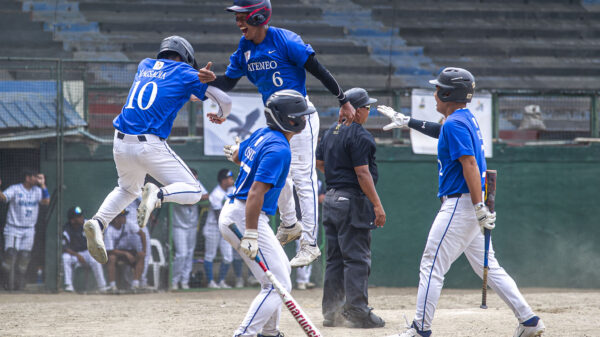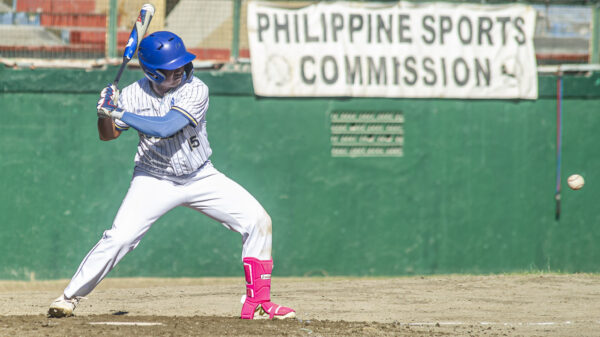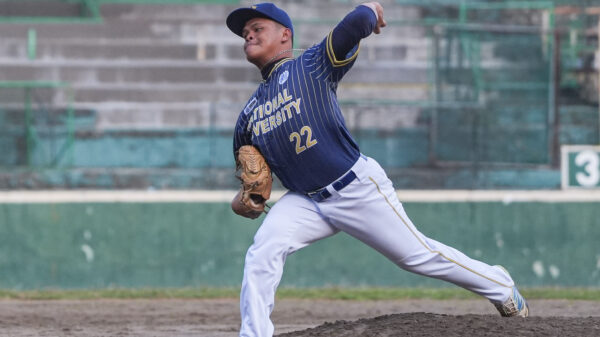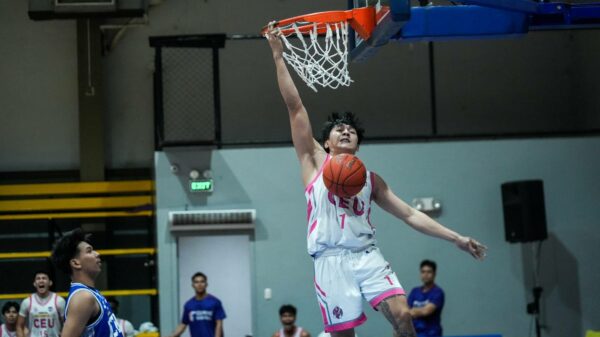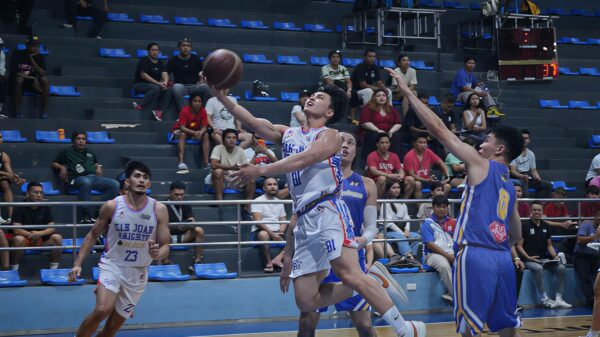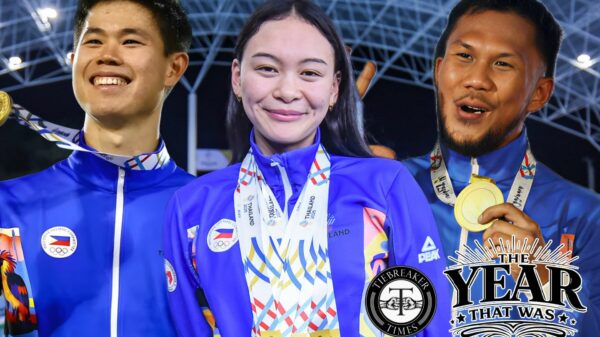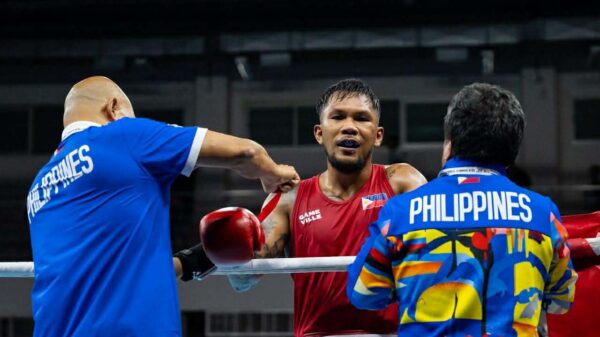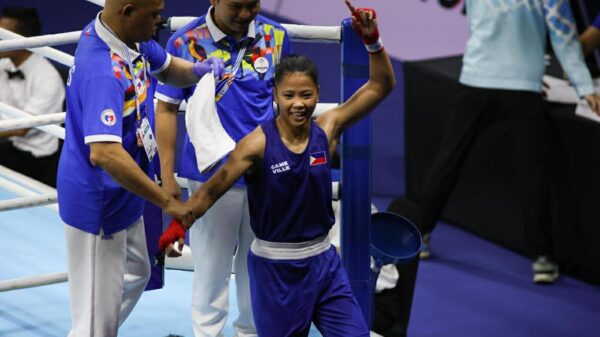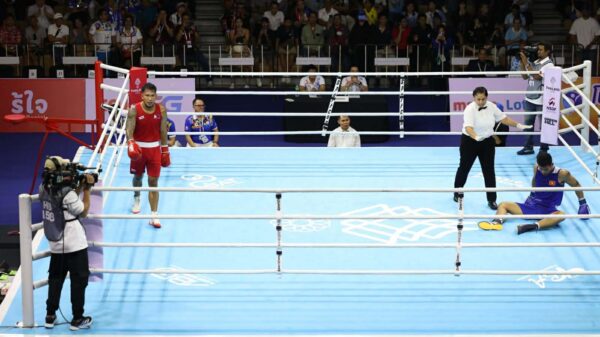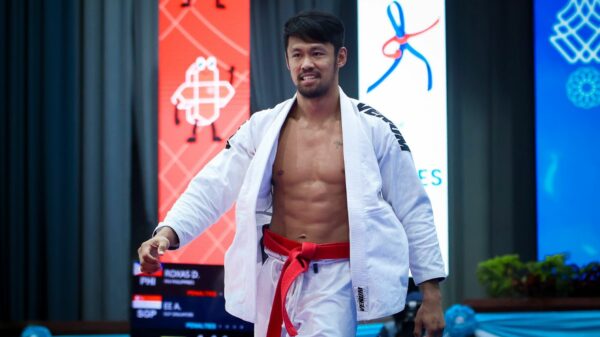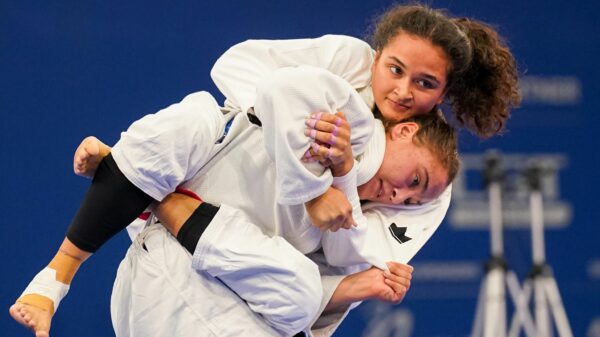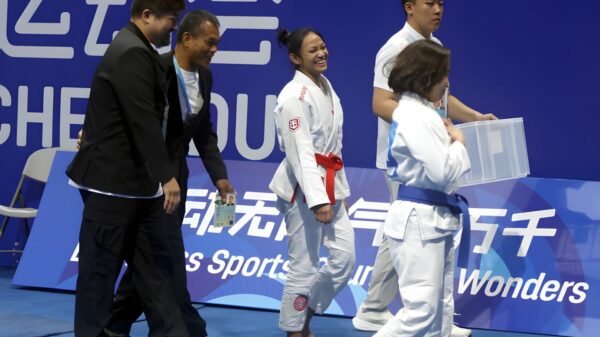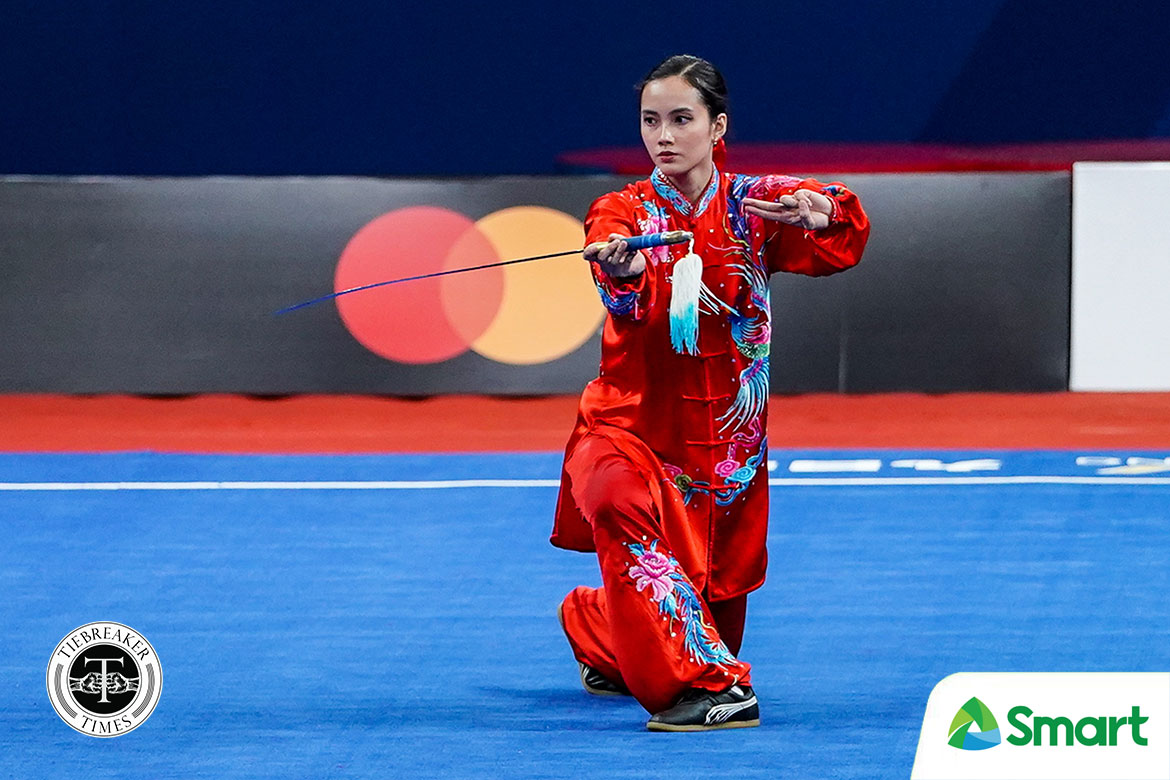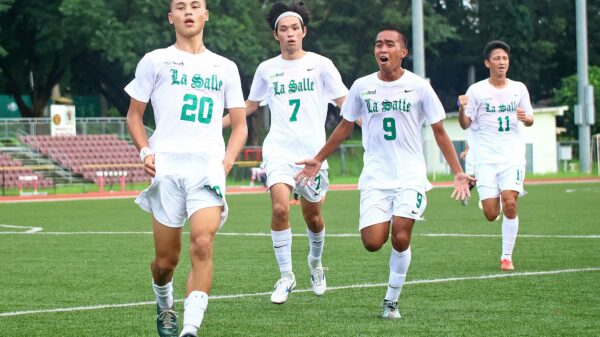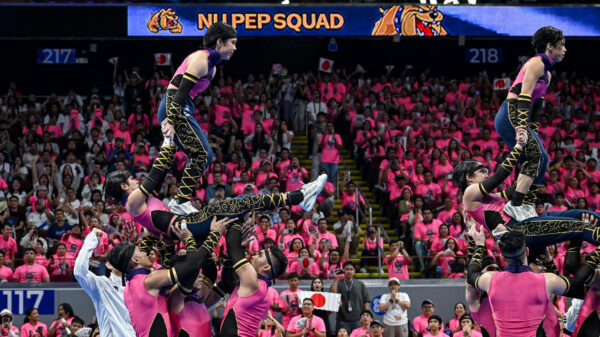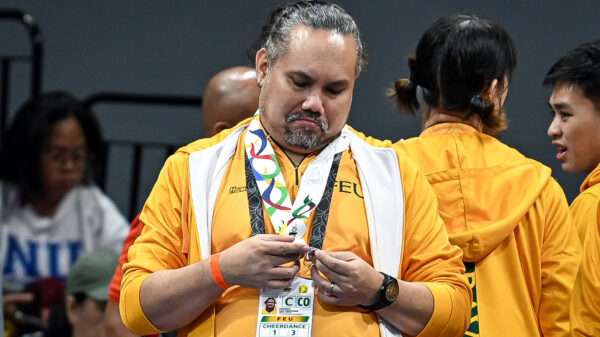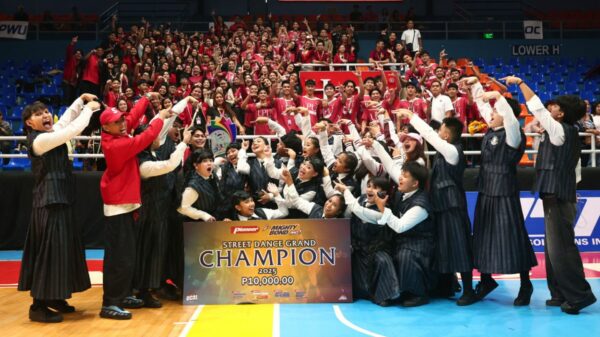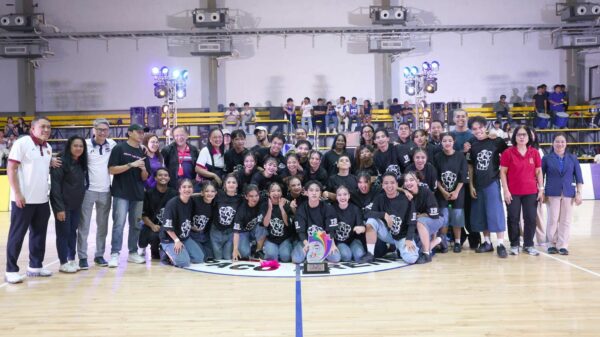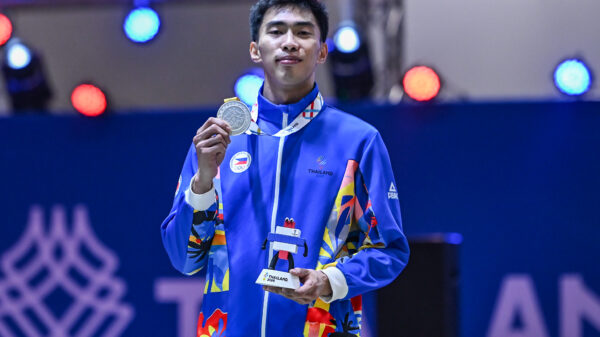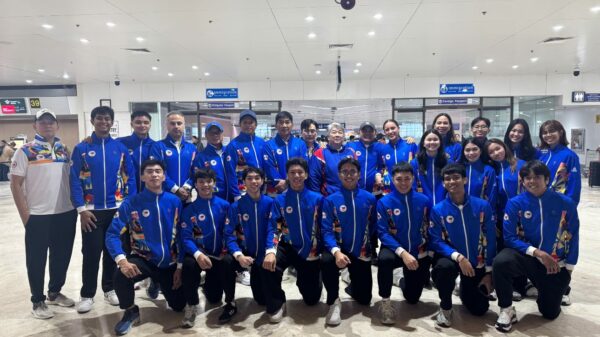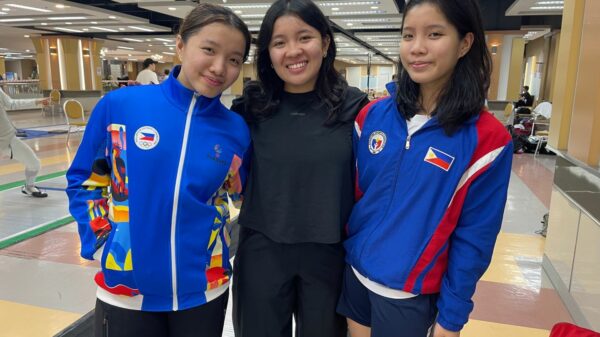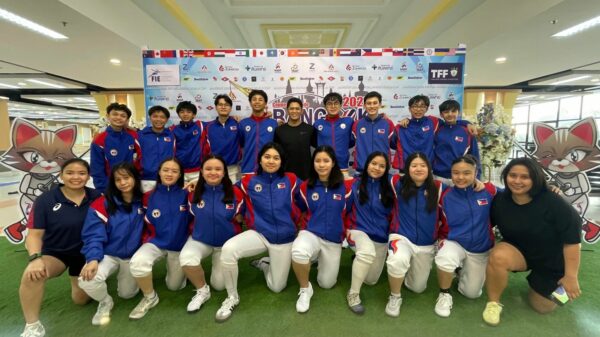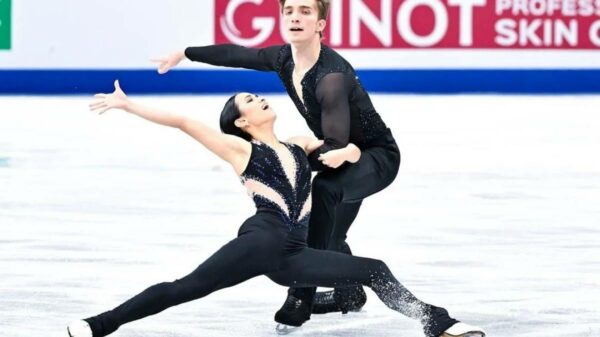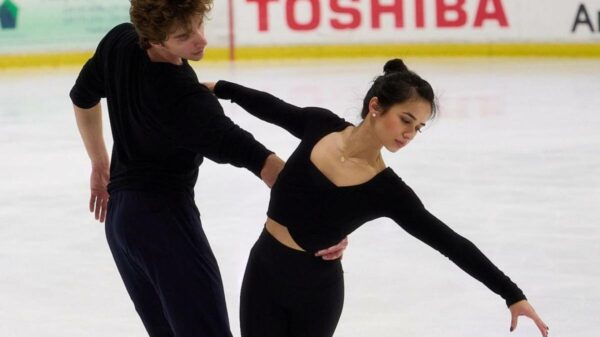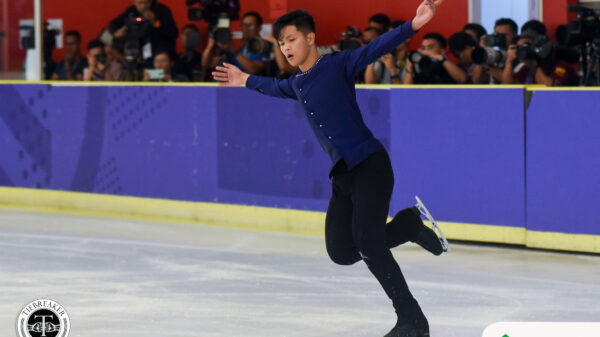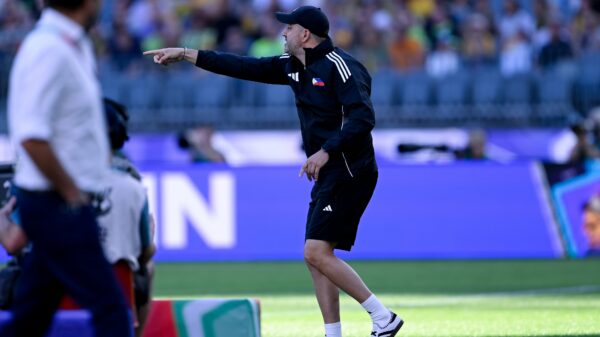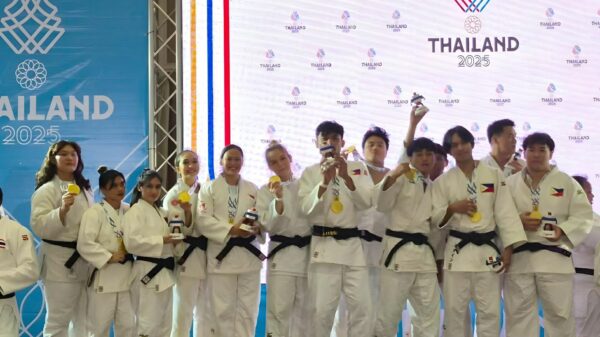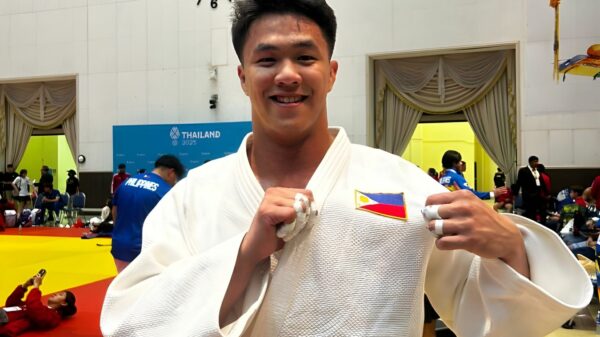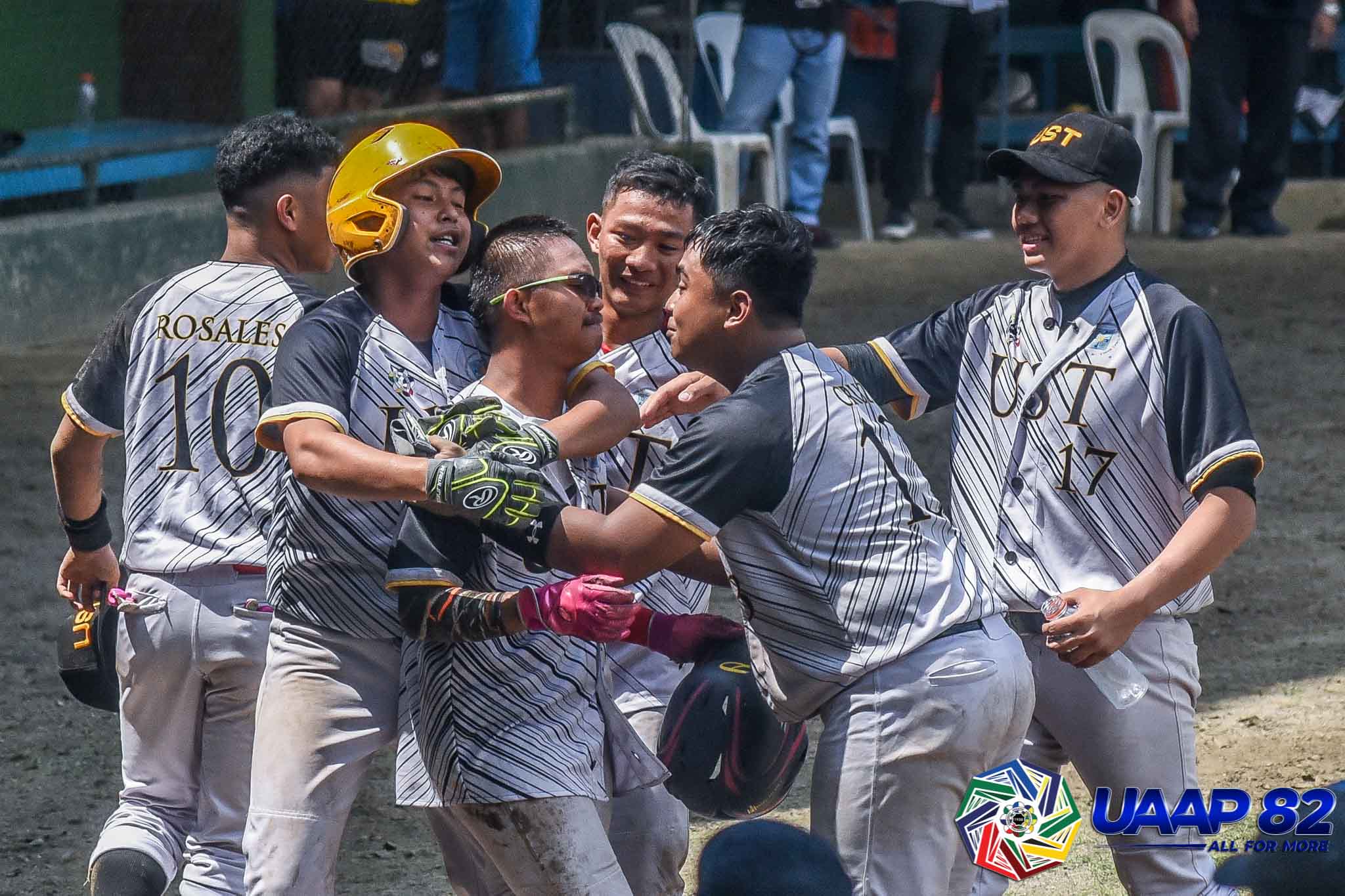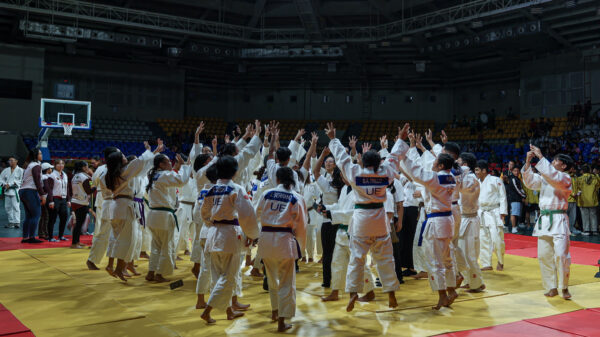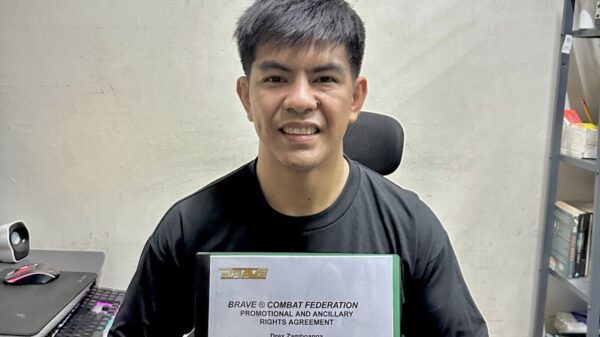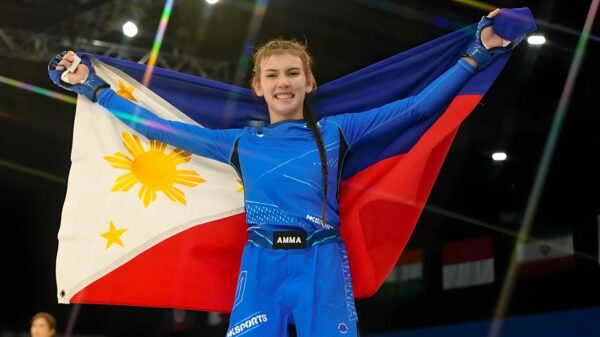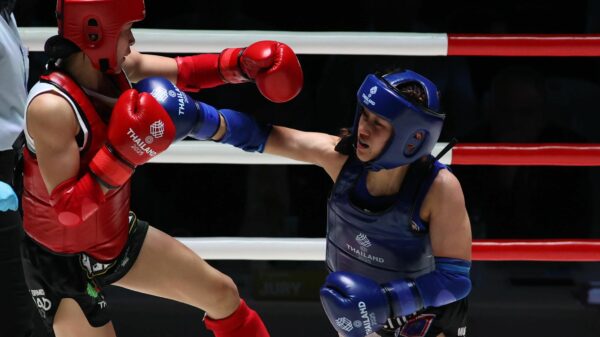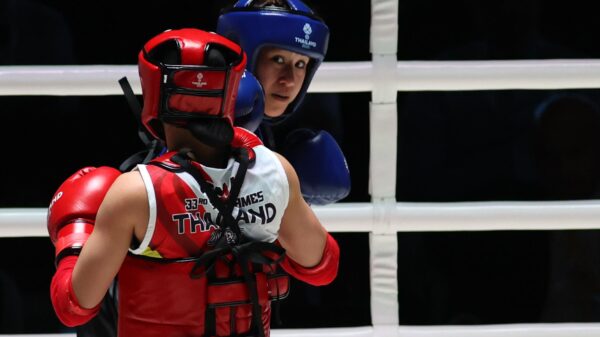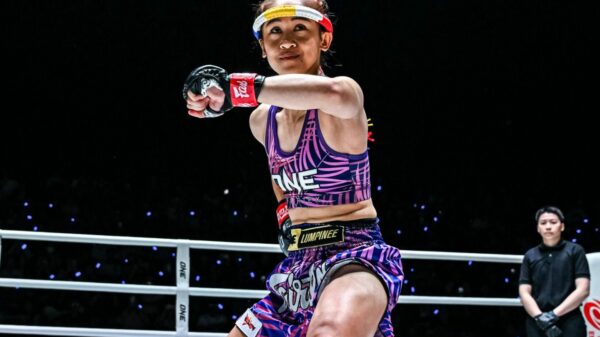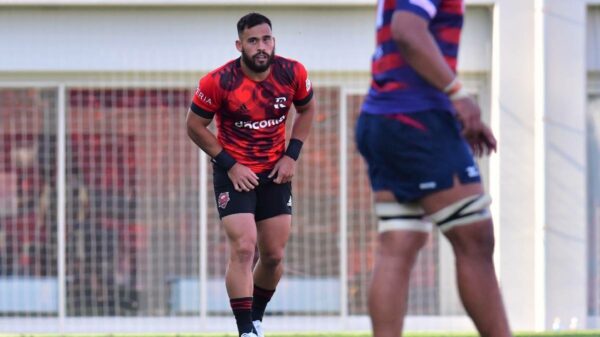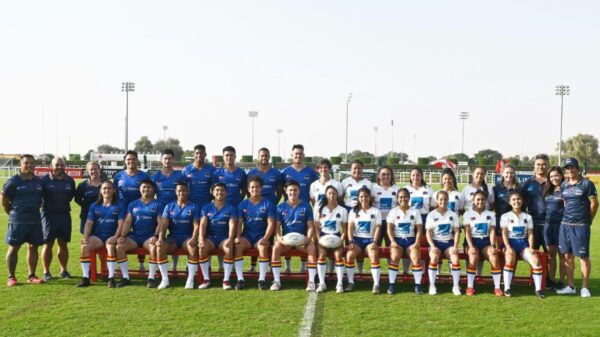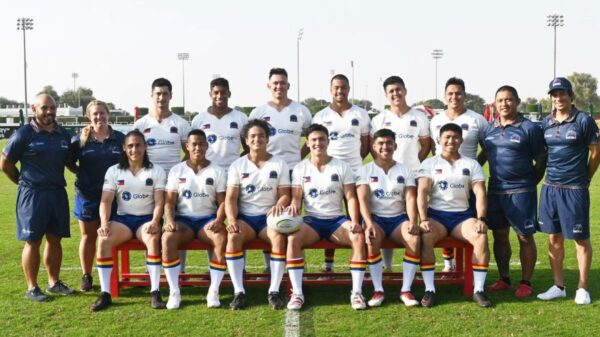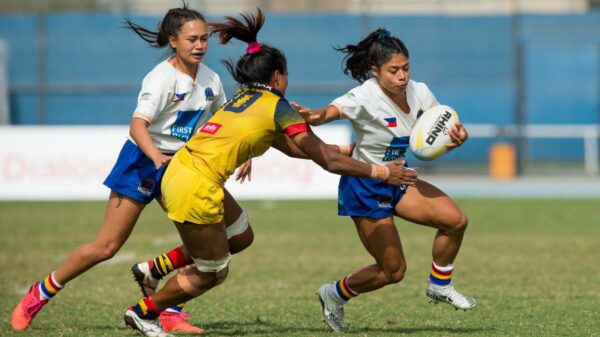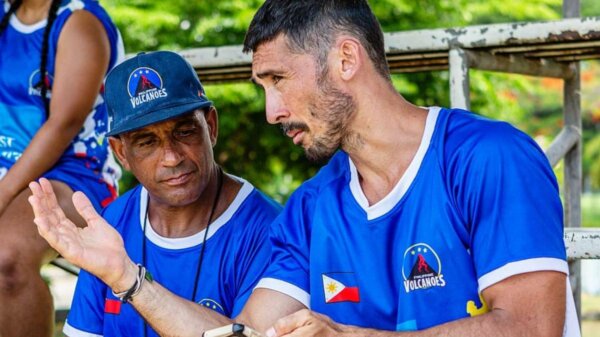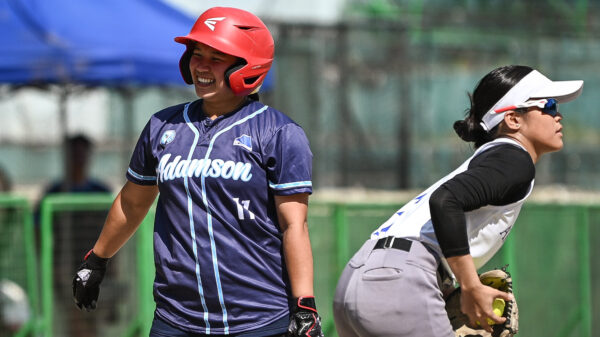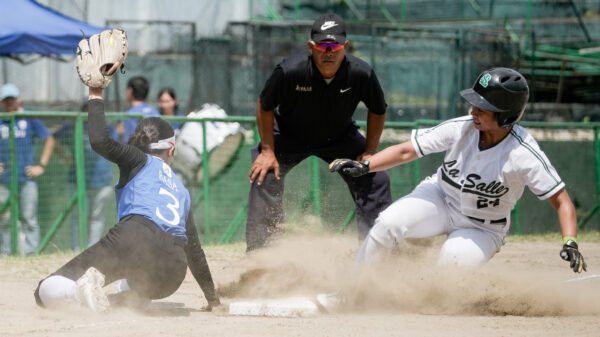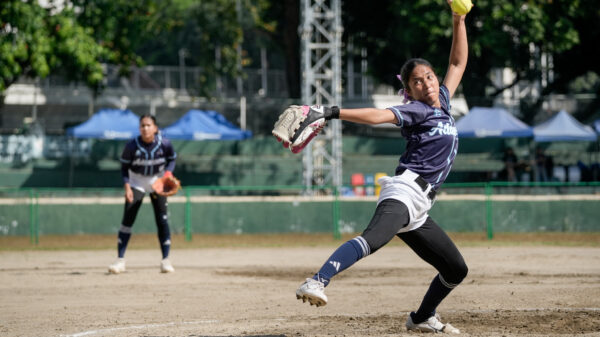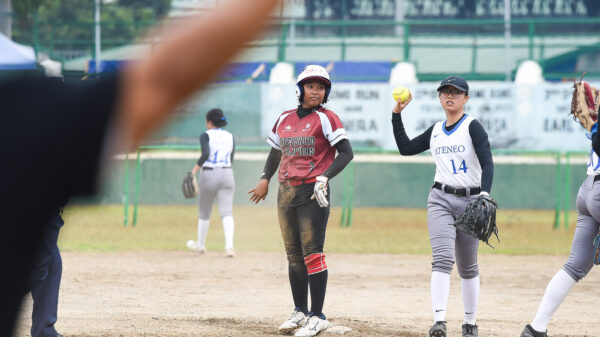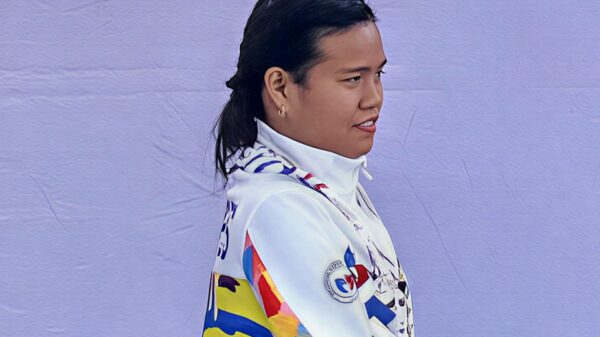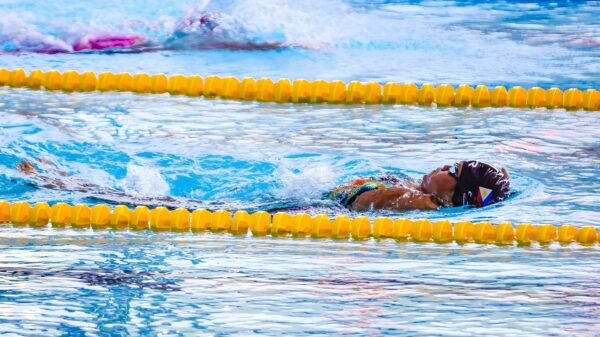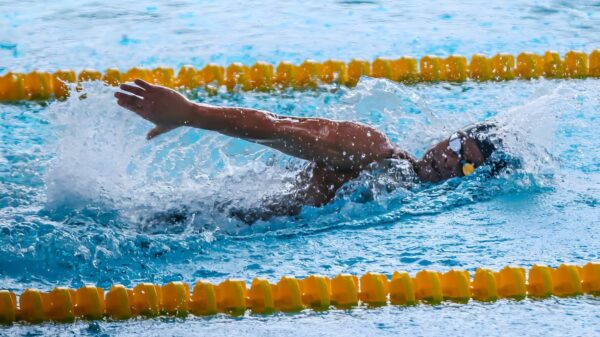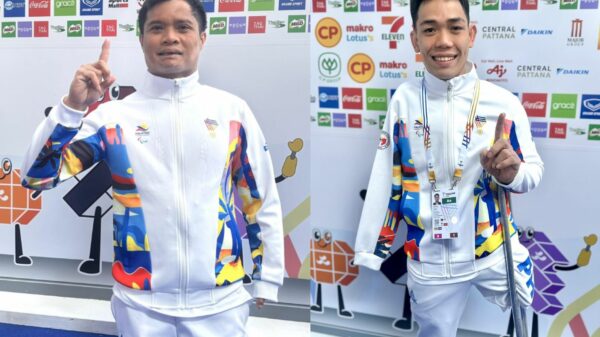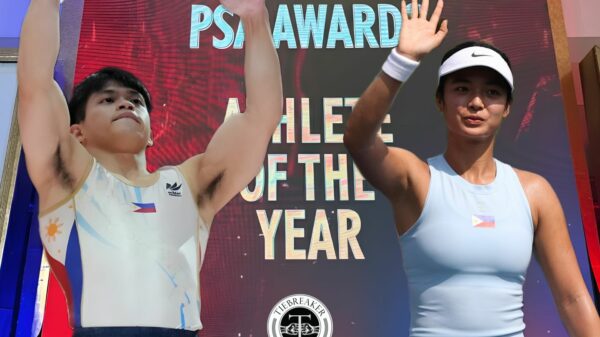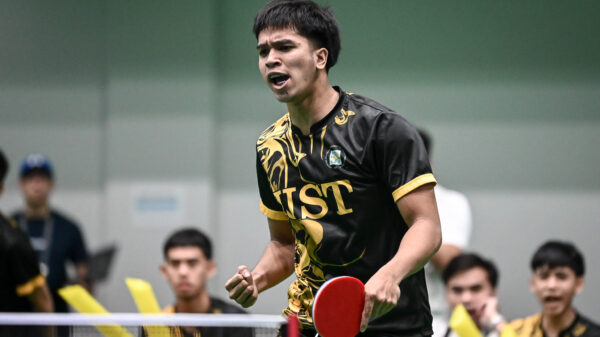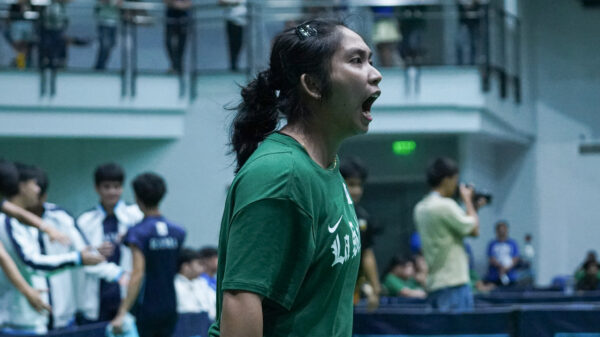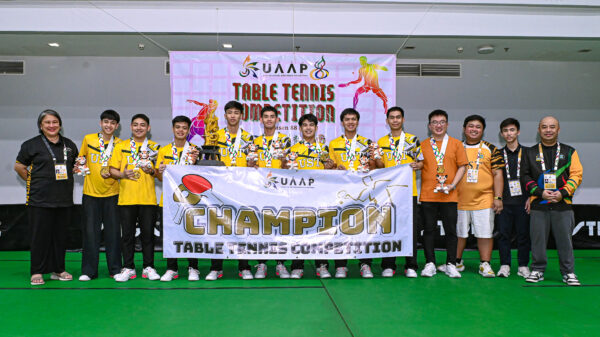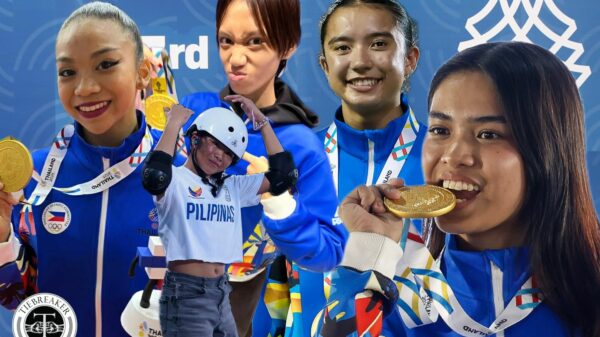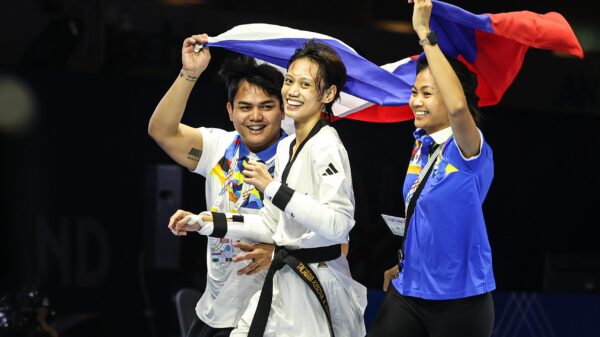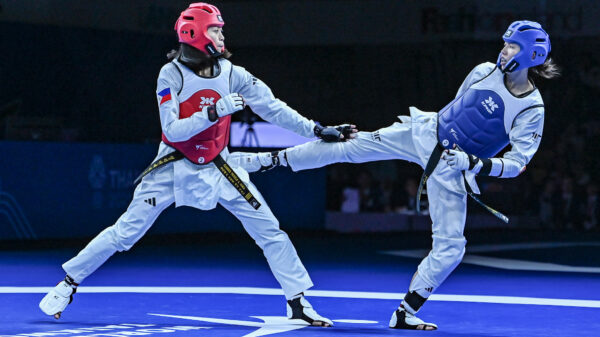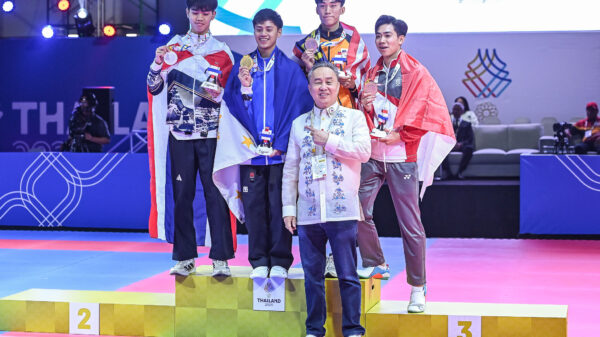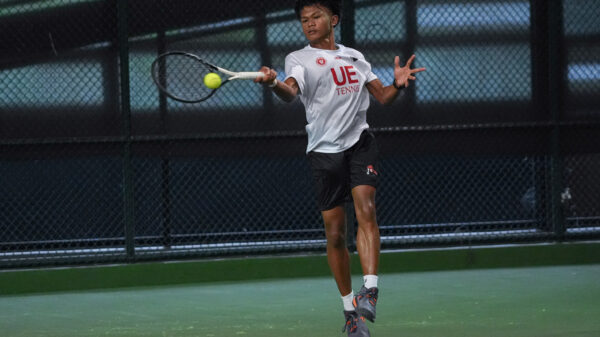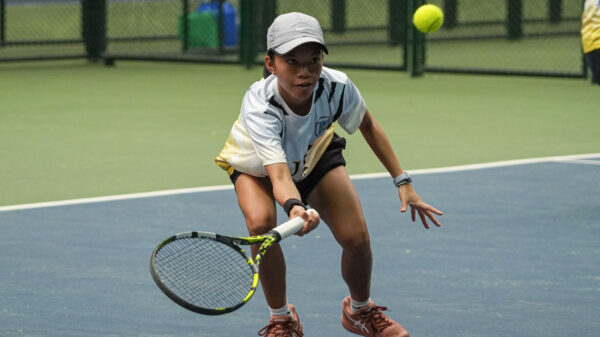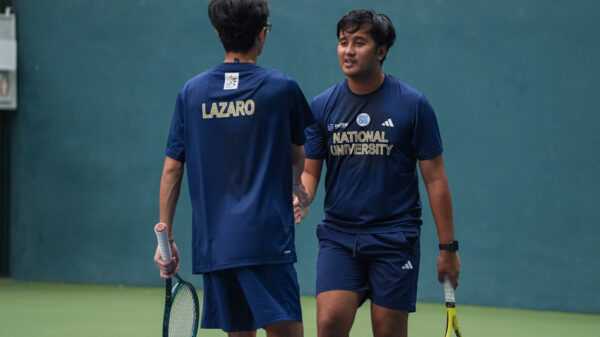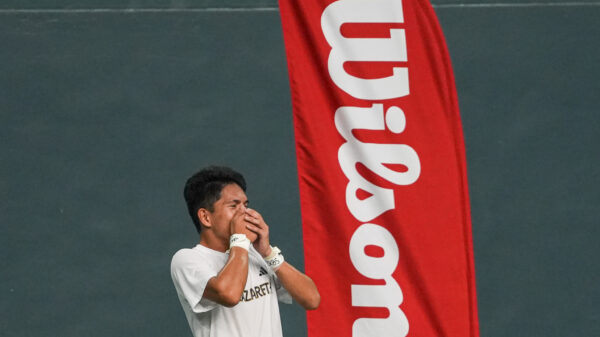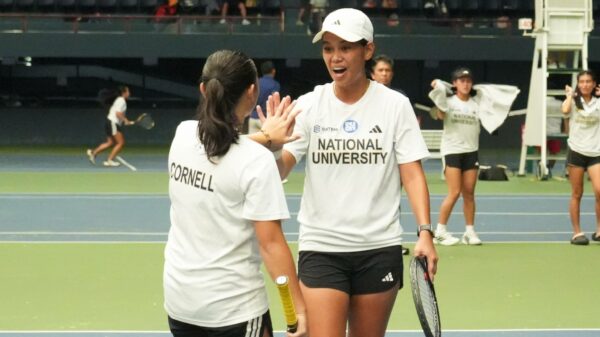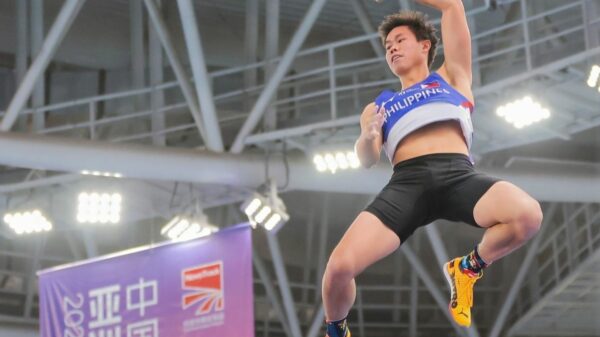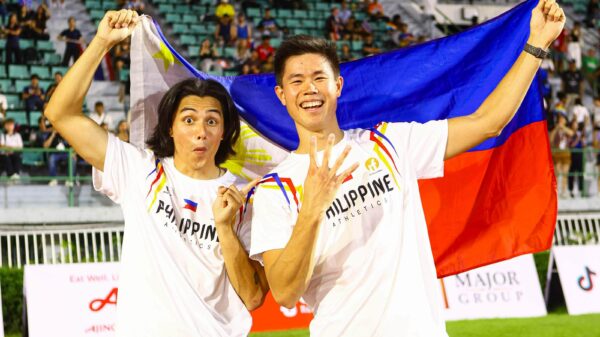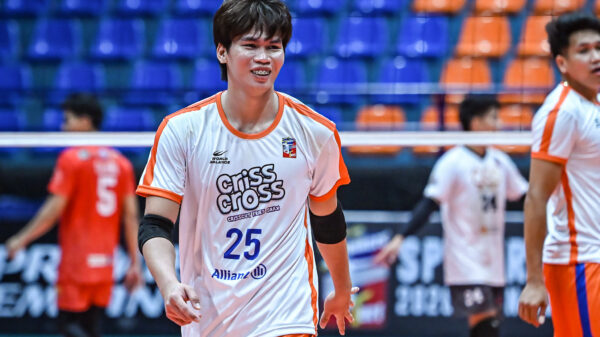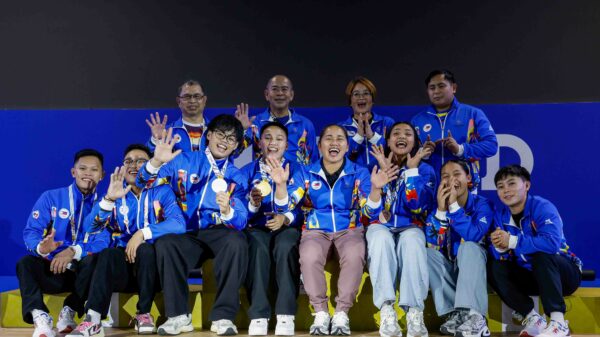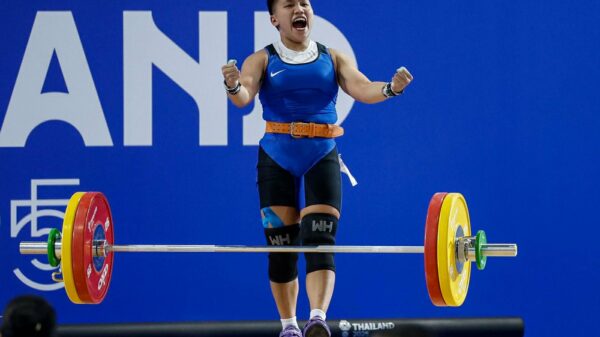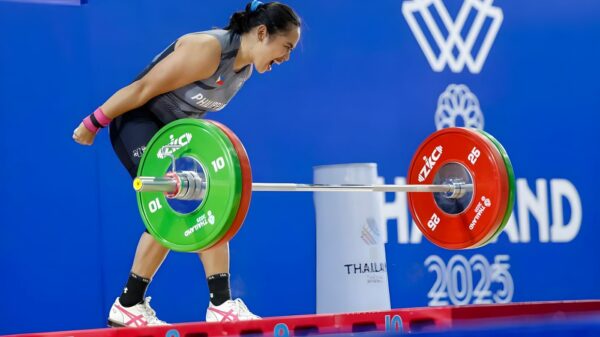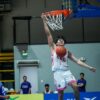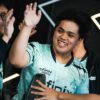Since transferring to Ateneo de Manila University, Hubert Cani has been bent on helping his team succeed.
The former UAAP Juniors Most Valuable Player has already waited for a year, with hopes of one day suiting up for the Blue Eagles.
It turns out, after the UAAP Board denied him of playing for UAAP Season 78, Cani has to wait even more.
“Naghintay na ako ng one year, alam ko na sa sarili ko na okay na, tapos biglang magiging ganyan ung case ko. Nakaka-disappoint,” Cani, who transferred to Ateneo last year after a high school stint with National University, shared.
Cani said he was training when news broke out he is deemed ineligible for the upcoming season which fires off on September 5. He was surprised to learn a lot of people was trying to communicate him, only to find out he will not be able to don blue and white just yet.
“Nung nabalitaan ko ung ganung issue na-disappoint ako syempre. Nagte-training kami noon so wala kaming alam, tsaka nagkaroon ng maraming nagtetext sa akin pagkatapos,” he said.
At a crucial stage where the Blue Eagles are already polishing their training for the upcoming wars, Cani said the decision is affecting him emotionally.
“Mahirap magfocus, halos two weeks na lang, UAAP na. Syempre mahirap magfocus ng maraming iniisip,” Cani said.
Cani added he is reminded to remain ready, and is thankful for the support the community is giving him.
“Sa tingin ko ina-appeal nila,” Cani spoke of the Ateneo camp. “Yung Ateneo community grabe ung support samin. Sinusuportahan nila kung ano ang tama.”
The backcourt player remains hopeful he will be able to suit up one day and finally make the most out of a long waig.
“Kailangan pa rin mag-focus. Sinasabi ko pa rin sa sarili ko na feel ko lalaro ako sa September, yun pa rin ang tinitingnan ko sa future.”
A brief history of how the UAAP residency rule has been affecting athletes
Cani is not the only athlete affected by the UAAP’s new residency rule which was implemented back in Season 76.
In the past, Jerie Pingoy, who transferred from Far Eastern University to Ateneo, was affected by the rule. After news broke out, the rule was popularly called the “Jerie Pingoy rule.”
Because of the new two-year residency rule, it was either Pingoy should get a release from his former school or abide by the rule, which prevented him from playing until Season 78. Pingoy never got a release from FEU.
Mikee Bartolome spent her high school in University of Santo Tomas, transferred to University of the Philippines and joined UP swimming team when she entered college.
She was prevented from competing in Season 76 although her side sought a TRO from the Supreme Court, letting her play during the season.
Her appearance in the swimming tournaments was marred by boycotts from a handful of UAAP schools which pulled out from the competition when they learned Bartolome was participating.
Most events of the swimming tournaments during that season became a virtual duel between only UP and Ateneo.
In April 10, 2014, Senator Pia Cayetano’s Senate Bill 2166 or “An Act Providing for the Magna Carta of Student-Athletes” was heard for the first time.
In the public hearing, Cayetano went after malpractices such as “scholarship with benefits” and wanted to provide new rules for student athletes.
Section 5.3b of the bill was tackled the most. Cayetano wanted to remove any existing residency rules or requirements for high school students wanting to transfer to another school.
Cayetano also wanted to implement just a one-year residency for college students wanting to transfer to another school.
Part of the bill states: “It is the right of a student-athlete to be free from any act of restriction or punishment from his old and/or new school due to his transfer from the former to the latter, Provided, that a one-year residency shall be respected by the school and athletic association in case of a transfer from one college or university to another. In no case shall this residency rule apply to a high school student who transferring to another school or to a college or university.”
Just this week the bill has passed the final reading, and shall only require the signature of President Benigno Aquino III. Even if Aquino fails to sign it, the Magna Carta of Student Athletes shall lapse into a law.
The UAAP Board’s main argument for not allowing Cani to play is that Cani was affected by the two-year residency rule before Cayetano and Senator Cynthia Villar co-authored Senate Bill 2166.
Cayetano has lambasted the UAAP for all the instances of preventing student-athletes from playing. On Tuesday, she released another statement following a UAAP Board meeting.
“The UAAP board has once again displayed its arrogance and immaturity by invoking its unjust two-year residency rule against a high school student who has transferred to a different school in college,” the statement reads.
The statement adds: “The UAAP must respect a student-athlete’s right to study and play for the school of his choice. The UAAP is not a commercial league but an amateur league. The UAAP Board should stop treating student-athletes like commodities.”
Amidst the chaos, Cani is hoping for the best — not just for himself, but for his fellow student-athletes and the advancement of student-athlete rights in the country.

